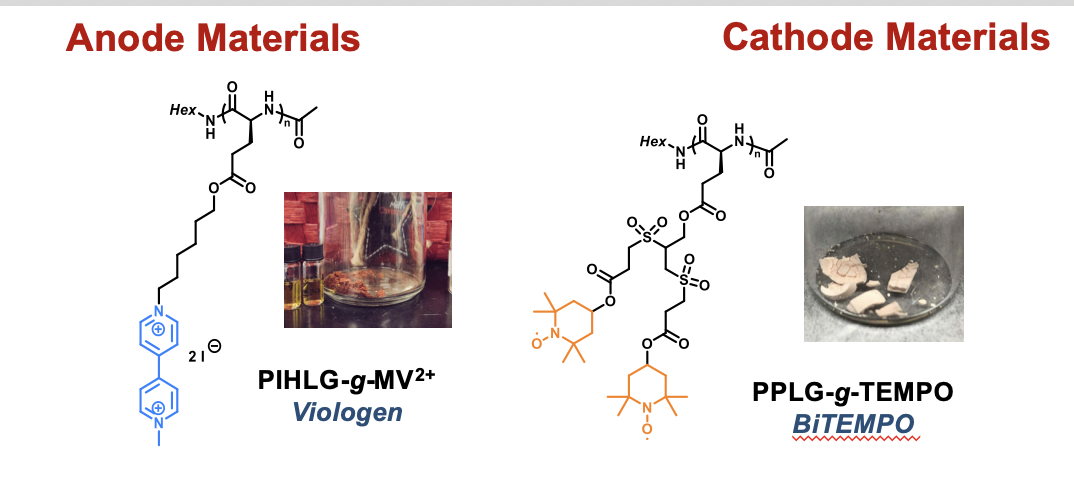Error loading player: No playable sources found
3556967
Redox-decorated peptides as candidates for flow battery active materials
Date
April 9, 2021
Related Products
Bioinspired and biodegradable redox-active polypeptides for sustainable energy storage
Energy storage systems developed using sustainable feedstocks and redox-active molecules offer significant ethical and environmental advantages compared to conventional metal-based platforms, such as lithium-ion batteries…
Electron transport in redox-active polypeptides
Within a few decades, lithium-ion batteries have revolutionized technologies facilitating the development of new portable devices and electric vehicles. However, this rapid technology growth has exceeded the mining ability of lithium, cobalt and other mineral ore resources…
Metal-free organic polymer batteries and polymer-air batteries toward circular energy storage
Cobalt, nickel, and lithium are essential ingredients in today’s lithium-ion batteries (LIBs), but their continued use presents economic, ethical, and environmental challenges…
Advanced functional polypeptides for biological, energy, and electronic applications
Polypeptides represent a class of naturally-derived (bio)degradable functionalizable polymers that are suitable for a variety of applications…



